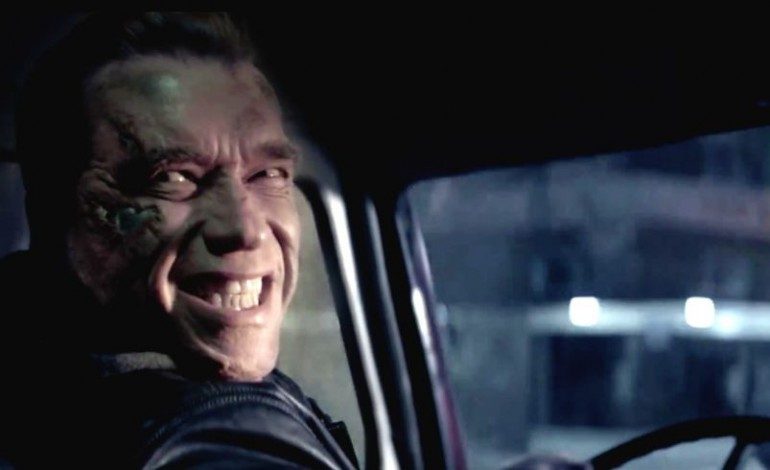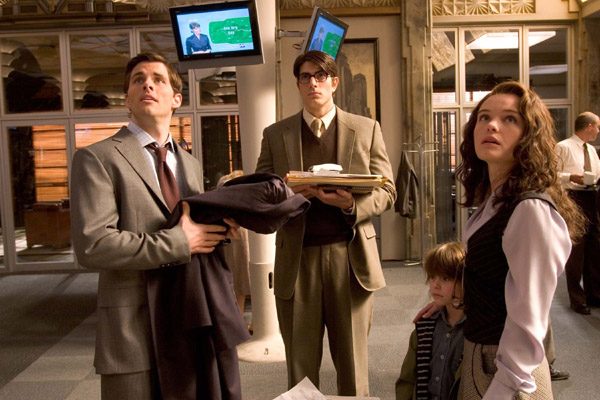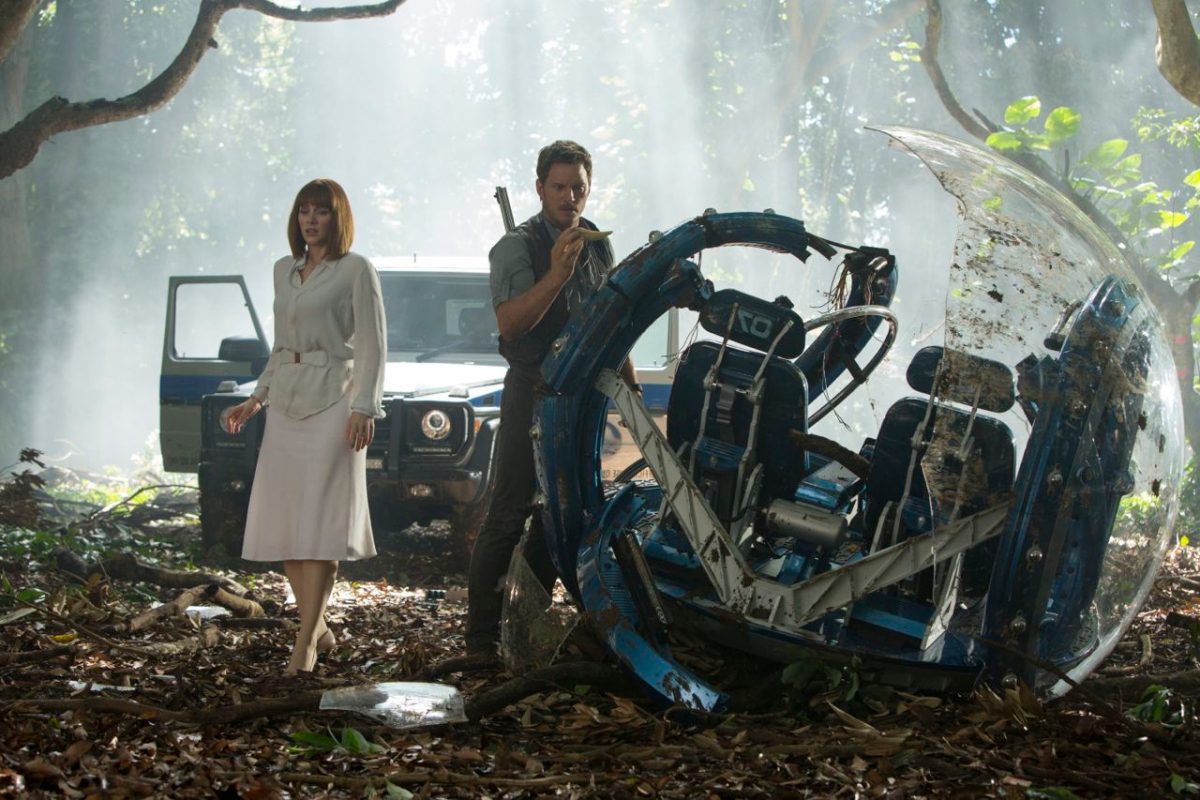

One of the latest trends in major motion picture franchises is the quasi-reboot, or picking up a series from the place in their often tumultuous history when people last liked them. Jurassic World is the latest to try this by being a sequel to the original, beloved Jurassic Park, rather than to its less satisfying and instantly forgettable sequels. (And boy, has paid off swimmingly.) While this tactic has been beneficial thus far, one has to wonder about possible long-term ramifications. The more this goes on, the more one gets a sense that none of the movies we watch “matter,” which harms not just the entire movie watching experience, but our relationships to the films themselves.
Bryan Singer has become a “master” of this form of revisionist history. Superman Returns from 2006 was one of the first recent movies to play around with this concept and failed miserably at it. This film was an ill-conceived quasi-sequel/quasi-reboot to the early Richard Donner films starring Christopher Reeve that featured Superman returning to Earth after a five-year journey to find the remnants of Krypton. Part of the problem was that Singer never made it clear precisely what he was picking and choosing to keep from those original films. Although it definitely ignored Superman III (1983) and Superman IV: The Quest for Peace (1987), we never learned if it was exclusively a sequel to Superman: The Movie (1978) or was it also a sequel to Superman II (1980)? And if the latter, the studio cut or the Donner cut? It obviously wasn’t a direct sequel to either as well (content was purposely/accidentally ignored), but what constituted canon still remains a mystery a decade later. Not to mention the troubling implication of Superman having sex with/impregnating Lois Lane and then wiping her memory soon after. It wouldn’t be difficult (and some may argue even preferable) having a movie where Superman already “exists” by the time the movie starts, but this attempt required the audience to swallow far too much baggage on faith alone.
The next time Singer tried this was in 2014 with X-Men: Days of Future Past, albeit with far more successful results but still using the same basic premise. Returning to the mutant franchise after leaving post-X2: X-Men United to do Superman Returns, he again decided to excise the parts he (and the audience) didn’t like. To be fair, X3: The Last Stand and X-Men Origins: Wolverine rank among the worst superhero movies of the modern era. With the possible exception of the Mandarin reveal in Iron Man 3, which at least served a clever narrative purpose and which Marvel seems like it’s trying to fix, very few decisions in this genre were as controversial as the inglorious killings of founding X-Men Cyclops, Jean Grey, and especially Professor X – and on a personal level, I disliked how they made Rogue a coward instead of letting her obtain her full gamut of powers. The Professor X decision was such a catastrophe that Singer didn’t even bother to give any explanation to his resurrection– Xavier’s up and rolling around by this movie just because. (And yes, I do know that there’s a credit sequence in X3 that shows Professor X transferring his conscience into a different body, but the X-Factor is a genetic mutation.) Regardless, these deaths specifically (and that entire third leg of the original trilogy, in general) was something many wanted to see done away with, and Singer gave it to us.
However, was this the right thing to do? The movie left nearly 30 years of X-Men cinematic history written, rewritten, and unwritten all at the same time. We have no idea when DOFP actually ends. Every future X-movie we see may be cannibalized by whatever filmmaker takes the helm without any regard for a cohesive storyline. They might treat important elements as a given despite being anything but. How would Logan get his adamantium bones if he’s not necessarily going to be part of the Weapon X project. And this is where the biggest problem lies- if they don’t care about continuity, why should we? For all this push towards an interconnected universe, is it really worth it if we lose the interconnected story? Seeing characters crossover is neat, but if their individual adventures are going to be ignored based on whichever way the wind blows, where’s our connection? (At least the Abrams’ Star Trek movie used Original Spock to let us feel comfortable that the past still exists and have fun with the premise.)
The next film to attempt this will be Terminator: Genisys on July 1, and it appears to be adopting the wrong lessons. This is another quasi-reboot for a franchise that would probably be best suited with a full reboot. After all, there’s nowhere left for the Termiverse to go other than the Future War, and the attempt at doing that (Terminator: Salvation) was a failure. But rather than trying to start anew, Genisys is attempting to destroy the previous films in an attempt to raise the franchise from the ashes by completely altering the events of the past four films. Unfortunately, Terminator is more than simply a time travel action-adventure; there was a heart to the first two Terminator movies (as well as the short lived TV series, The Sarah Connor Chronicles). It’s about questions of fate, sentience, and what a mother will do to protect her child more than it is about a school bus flipping on the Golden Gate Bridge.
Instead, if the trailers (and early reviews) are any indication, this film is again playing towards lowest common denominator action shlock like the last two movies. Even more disappointingly, it almost seems as if the main reason they took this approach was simply to see Arnold Schwarzenegger as the Terminator yet again. For fans of the series, this shouldn’t be that much of a draw. A mindless killing robot is a mindless killing robot. Giving the reins to a younger actor who can provide a different spin to the iconic role and serve as an ongoing foil for the Connors has much more appeal to me than hearing “I’ll Be Back” in an Austrian accent yet again. This choice is more cynicism than selling point. A punchline more than a punch. Strangely, if Terminator had gone for a fresh reboot, it could have probably better recaptured the elements that made the first two films special rather than having to waste an entire film deleting everything that came before it.
Nevertheless, this will probably be the trend for the foreseeable future. The dual draws of franchise brand recognition plus nostalgia is too strong to ignore, plus “fresh” reboots tend to disappoint critically and commercially (e.g., RoboCop) so why not leech as much as possible from the original actors while they are still alive? But isn’t there a problem with constantly retreating back to the movies most people liked? As nice as it would be to see Michael Biehn back as Hicks, is it worth it to make Alien 5 Alien 3b? These red-headed stepchild films are films nonetheless and are still made with countless hours of effort from filmmakers and actors. There are plenty of people who still appreciate Alien 3 as I’m sure there are people who appreciate Terminator: Rise of the Machines. Just because these second tier sequels aren’t as heralded as their brethren doesn’t make them any less valid a movie-going experience. Aliens, Terminator 2: Judgment Day, and even elements like Terence Stamp’s General Zod in Superman II aren’t merely great, they’re lightning in a bottle. Erasing the existence of Sam Worthington’s Marcus Wright won’t make today’s Sam Worthington (Jai Courtney) any better as Kyle Reese.
Film franchises shouldn’t be wholly condemned because of bad installments. However, doesn’t allowing them to ignore (or erase) their mistakes with no recourse feel kind of like cheating? Isn’t this form of constantly re-inventing the past what we blasted George Lucas for with the Star Wars Special Editions? If we keep crying mulligan in order to prolong the life of these franchises, eventually there will be nothing left of the original movies to love. After all, it wasn’t solely the effects that made these movies special- it was the characters and the stories. By constantly carving out pieces of each to ignore and retcon, all we’ll be left with is this week’s forgettable action set piece. Of course, the alternative would be complete reboots every few years until we’re completely sapped of any real connection to the universe. So who’s looking forward to a yet another Spider-Man?


